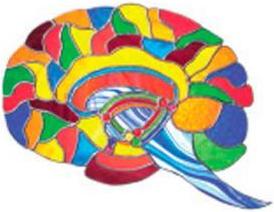 The book tells the tale of a brain scientist experience when she had a stroke. It was recommended to me by my friend n0ur recently. I have been reading it on and off for the past two weeks, and while still haven’t finished it yet, I want to share some of it with you.
The book tells the tale of a brain scientist experience when she had a stroke. It was recommended to me by my friend n0ur recently. I have been reading it on and off for the past two weeks, and while still haven’t finished it yet, I want to share some of it with you.
The Story
Watch the following talk by Jill at TED, no one can tell the story better than her:
The talk is available with Arabic subtitles as well.
Right/Left Hemispheres: Spirituality, Math, Creativity, Speech…
An amazing journey towards understanding the spiritual perception of our brains down at the neurons level. The differences between our right and left hemispheres, and how they affect our interaction and understanding of our world.
I am still reading this book, and will edit this page adding more quotes and info as I go, I will leave you with the quotes listing below…
Quotes
Emotions and Our Limbic System
It is interesting to note that although our limbic system functions throughout our lifetime, it does not mature. As a result, when our emotional "buttons" are pushed, we retain the ability to react to incoming stimulation as though we were a two year old, even when we are adults.
Learning Environments and Our Brain's Amygdala and Hippocampus
When incoming stimulation is perceived as familiar, the amygdala is calm and the adjacently positioned hippocampus is capable of learning and memorizing new information.
However, as soon as the amygdala is triggered by unfamiliar or perhaps threatening stimulation, it raises the brain’s level of anxiety and focuses the mind's attention on the immediate situation. Under these circumstances, our attention is shifted away from the hippocampus and focused toward self-preserving behavior about the present moment.
We Feel, Then We Think.
Sensory information streams in through our sensory systems and is immediately processed through our limbic system. By the time a message reaches our cerebral cortex for higher thinking, we have already placed a “feeling” upon how we view that stimulation – is this pain or is this pleasure? Although many of us may think of ourselves as thinking creatures that feel, biologically we are feeling creatures that think.